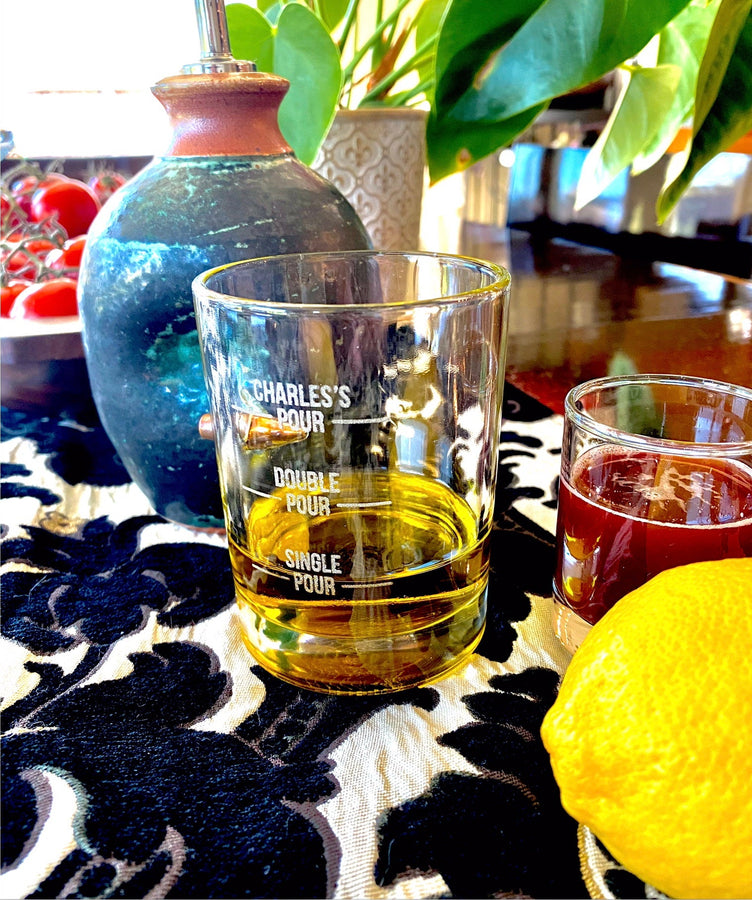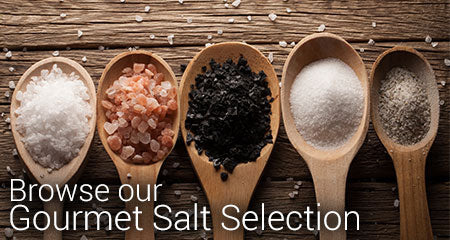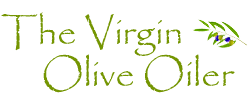Functional Foods and Your Immune System - Blog # 40

Hello Everyone!! Welcome back to another Friday blog. Whether you have been vaccinated for Covid-19 or not, we are all at risk of exposure to some variant of it. Boosting our immune system is highly recommended. I wanted to take a fresh look at the latest research on WHAT we can do to keep ourselves safe and healthy. Let’s take a closer look at what exactly is going on.
First, let’s take a look at our immune system. “Organs and tissues involved in the immune system include the thymus, bone marrow, lymph nodes, spleen, appendix, tonsils, and Peyer’s patches (in the small intestine).” There are 2 types of immunity: Innate (non-specific) and Adaptive (specific).
Innate immunity is the body’s response to a perceived harmful foreign invader or pathogen, such as a virus, bacteria, fungi or even worm. Our first line of defense is the skin and mucous membranes. However, if a pathogen makes it past the first line of defense, phagocyte (type of white blood cell) engulfs it and neutralizes it.

Adaptive immunity (only in vertebrates) complements the innate immunity with a targeted response to a specific pathogen. These cells circulate in the blood searching for pathogens. Lymphocytes are white blood cells that mature into several subtypes. They are produced from bone marrow and mature to become T cells and B cells. T cells mature in the thymus, hence T-cell, and do the following:
-
They use chemical messengers to activate other immune system cells in order to start the adaptive immune system (T helper cells).
-
They detect cells infected by viruses or tumorous cells and destroy them (cytotoxic T cells).
-
Some T helper cells become memory T cells after the infection has been defeated. They can "remember" which germs were defeated and are then ready to activate the adapted immune system quickly if there is another infection.
“T cells are activated when a particular phagocyte known as an antigen-presenting cell (APC) displays the antigen to which the T cell is specific.” A T helper cell (subtype of T cell) signals B cells to divide into plasma cells, phagocytes to destroy microbes and activates killer T cells.
B cells mature in the bone marrow and differentiate to become plasma cells that produce antibodies. It takes 1-3 weeks for your body to make antibodies to a specific pathogen it hasn’t seen before. Once your body has made antibodies to a certain antigen (on pathogen), it specifically targets that pathogen. Antibodies perform the following functions:
-
They neutralize germs, e.g. by directly attaching to the cell surfaces of viruses or bacteria, or by attaching to their toxins. This prevents the germs from latching onto the regular cells of the body and infecting them.
-
They activate other immune system cells by attaching to their surfaces. Scavenger cells are better able to fight off germs that are loaded with antibodies, too.
-
They activate proteins that help in the immune system response.
Here’s an illustration of how an antibody works agains antigens:

Now that we’ve got a little better understanding of how our body responds to an invader, let’s talk about what chronic low-grade inflammation from consuming the western diet does to our immune system. “Inflammation increases the need of immune cells for rapid generation of cellular energy. To meet this need, immune cells shift to aerobic glycolysis for energy production, a less-efficient, but fast-acting pathway (Kominsky et al., 2010; McGettrick and O'Neill, 2013). During chronic low-grade inflammation, the extended reliance on aerobic glycolysis would be expected to lead to reduced nutrient availability and thus to less energy availability for demanding organ systems. The organismal energy balance can further be encumbered by changes in circadian rhythms and sleep. In addition, there is evidence suggesting that low-grade or chronic inflammation (but not acute severe inflammation) can be linked to increases in behavioral-energy expenditure (Vichaya et al., 2014; Lasselin et al., 2017), contributing to the imbalance between energy availability and expenditure and, thereby, leading to fatigue.”
So, this means that chronic low-grade inflammation puts a fatiguing stress on the immune system, as well as explains why we feel tired!!! We need to counteract this with anti-inflammatory foods!! Let’s look at what we can do to enhance or help our immune system’s performance. A recent article reports moderate exercise + functional foods “protect” against Covid-19 and other viral infections. “Adopting exercise together with an enhanced dietary intake of functional compounds may contribute as a preventative medicine against emerging viral infections.”
Let’s first look at exercise. “Exercise impacts all immune cells within both innate and adaptive immune systems, particularly elevating the activity of natural killer (NK) cells, neutrophils, and macrophages following moderate exercise (less than 60% of V˙ O2max).” How does it do this? In the journal Nutrients, researchers reported “exercise induces cardiovascular, respiratory, and metabolic adaptations, which result in higher maximal oxygen uptake (V˙O2max), carbon dioxide production, minute ventilation, breathing frequency, stroke volume, and cardiac output [11]. Improvement in whole-body cardiometabolic and respiratory functions boosts the immune system defence through several acute and long-term mechanisms.”
Acute aerobic exercise, for example increases monocyte numbers. Monocytes are known to play an integral antiviral role in the immune response, for example with several types of Influenza A virus. They are known to respond by differentiating into mature dendritic cells with enhanced capacity to activate T cells within 18 hours in response to exercise. That’s fast compared to the approximate 14 days to make antibodies!!!
So, what is meant by moderate exercise? “A practical method of achieving moderate exercise intensity is using 40–70% of maximum heart rate (HRmax = 220-age).” They also recommended resistance exercises using one’s own body weight as well as to interrupt sedentary behavior. In addition to moderate exercise, functional foods and nutrients were studied to determine their role.
What is a functional food? “Functional foods naturally possess active ingredients or “nutraceuticals” that are associated with disease preventative health benefits.” Foods whose natural content of nutraceuticals is high in polyphenols, terpenoids, flavonoids, alkaloids, sterols, pigments, vitamins, minerals and unsaturated fatty acids are considered functional foods. One very important vitamin for our immune system is Vitamin D. It “reduces acute respiratory tract infection, and its deficiency is linked with susceptibility to viral infections, and also with various cancers, diabetes, and CVD (cardiovascular disease).”
Examples of functional foods are EVOO, variety of fruits and vegetables, oily fish, nuts, legumes, coffee and even fermented teas. These beneficial compounds and phytonutrients have positive anti-inflammatory and antioxidative effects on our bodies.“Phytonutrients may also enhance immunity and intercellular communication, repair DNA damage from exposure to toxins, detoxify carcinogens and alter estrogen metabolism.” Many of these phytonutrients give fruits and vegetables their pigment, so choose deeply-hued, dark green and brightly colored foods.

Some functional foods don’t have nearly as much color, but are very powerful. Examples are garlic and onions. They contain organosulfur compounds like quercetin and allicin, associated with inhibition of viral infection. “These chemicals can hinder virus attachment to host cell, alter transcription and translation of viral genome in host cell and also affect viral assembly. Quercetin can affect entry and attachment of Enterovirus and Influenza virus on host cell. This compound also has ability to inhibit RNA polymerase which is necessary for viral replication. Quercetin also inhibit process by which virus alter signalling pathway in host cell. Organosulfur compounds like allicin, diallyl trisulfide and ajoene are main chemicals which impart antiviral property to garlic. It is known that allicin can pass through phospholipid membrane of cell and can further contribute in inhibiting viral multiplication.”
One of the most powerful functional foods is EVOO. EVOO has been described as “a key bioactive food because of its high nutritional quality and its particular composition of fatty acids, vitamins and polyphenols. Indeed, the beneficial effects of EVOO have been linked to its fatty acid composition, which is very rich in monounsaturated fatty acids (MUFA).” The polyphenols in EVOO naturally protect the plant from viruses, bacteria and oxidation. It does the same thing for our bodies!! Let’s take a look at a couple polyphenols and how they promote viral defense.
“Oleuropein has shown a potential antiviral activity against respiratory syncytial virus (RSV), a common upper respiratory infection (URI) virus [69]. This effect has been attributed to the antioxidative property of elenolic acid as a main fragment in oleuropein, which has long been shown to have potent antiviral activities against herpes, influenza A and B, and parainfluenza 1, 2, and 3 viruses.”
“Hydroxytyrosol antiviral mechanisms were showed through its inactivation effects on influenza A viruses, especially during the virus morphological changes, such as the presence of a viral envelope which is an integral membrane protein involved in several aspects of the virus life cycle including its assembly, budding, and pathogenesis.” Another study revealed “5-Hydroxytyrosol inhibited HIV-1 infections of recombinant or wild-type viruses in all the target cells tested.”
According to the National Institute of Health, “adequate dietary intake, and supplementation of such functional foods, contribute to maintaining optimal levels in the human body, which enhances several aspects of the immune system [7,45], and provides an important antiviral prevention of COVID-19.” They state “the more varied the dietary sources, the better the protection is against all viral infections. Adopting exercise together with an enhanced dietary intake of functional compounds may contribute as a preventative medicine against emerging viral infections.”
So to sum it up, get up out of your chair. Do some moderate exercise…go on and push it to 60% VO2max, eat some colorful fruits and veggies, take an EVOO shot and call me in the morning! 🤣
So, until next time my friends, boost your immune system!!! Drink, drizzle, digest high polyphenol EVOO, eat fatty fish rich in Omega 3s, eat foods high in lutein, drink lots of water, brush and floss your teeth, get a good pre/probiotic to balance your gut microbiome, moderately exercise your body and mind, get plenty of sleep…and turn off the light! Stay healthy my friends #EVOO
This blog is intended for informational purposes only. Discuss strategies with your Healthcare Practitioner.







Comments (3)
What timely information on how to boost our immune system! Thank you!
What timely information on how to boost our immune system! Thank you!
What timely information on how to boost our immune system! Thank you!